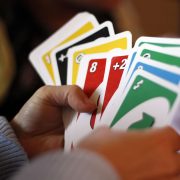Posts
How to STOP Sabotaging Your Relationships and START Listening
/0 Comments/in Highly Sensitive, Parenting, Teen /by MegghanA BIG reason why playtime should be a part of your child’s daily routine, even during a crisis
/0 Comments/in Highly Sensitive, Parenting, Play Therapy /by MegghanWhy Teens Say Deep Breaths Don’t Work
/0 Comments/in Highly Sensitive, Parenting, Teen /by MegghanWe hear from parents all the time that they work hard to support their teen to use their coping skills only to be met with this stuck feeling that the skill won’t actually calm their teen down. This can be scary for parents whose teens are struggling with dark thoughts.
The truth is, deep breaths are just one piece of the puzzle. It’s actually not that easy for teens with big feelings to stop, notice the big feeling in its intensity and take action. Taking a deep breath can work, but a teen has to catch it early or to do it long enough to calm the body’s nervous system, which is activated every time your teen feels a big feeling.
This is quite a challenge for a teen who judges themselves for even having the big feelings in the first place. We work with teens to first acknowledge their emotion and stop the judgment. Saying “don’t worry” or “everyone has feelings” isn’t impactful for teens who feel deeply.
What we help teens realize is that even if you feel big feelings, and feel singled out because of this, there are still people out there like you, and it’s why our groups are so helpful. Teens learn the strategies without venting about their days when they come to group (because that’s counterproductive in DBT, and why we actually call it skills class, not skills group!)
They feel a part of a community without being overwhelmed, and when they witness the skills working for other teens they feel engaged enough to try them at home even if their parents have struggled to get them to do it on their own before. And parents feel supported because in skills class it’s built into the curriculum to achieve motivation for your teen to do the skills and accountability to follow through… Parents are always happy to stop nagging if it means they’re not giving up or giving in!
Teens get the support they need to make actionable change, take ownership over their emotions and actions without shame, and learn to stop the self-judgment and panic.
https://thompsonchildtherapy.com/teen-skills-group/
Dogs Can’t Tell You You’re a Piece of Crap
/0 Comments/in Animal Assisted Play Therapy, Play Therapy /by MegghanHow I Became Interested in Animal-Assisted Play Therapy
For a period of time at a Residential Treatment Center I worked at it was ‘bring your dog to work day’ any day you felt like it. So I, having just gotten a dog myself, was super excited when he reached the four-month mark and was allowed to come. This was a very selfish goal of mine. I wanted to bring my puppy to work–how amazing would that be? What I didn’t know was how effective Porter’s personality would be with these youth who had such extreme behaviors.
Dogs are Great Listeners
Their aversion to talking about their feelings based on their history of neglect and abuse was pronounced, but when you put a dog in the room (and one who was fluffy and friendly and calm… almost never) you are able to help them feel comfortable enough to process what hurt them in order to build skills to help them make it through their days.
I saw hardened, aggressive, outwardly mean teens melt to the floor with this puppy in their lap. And as he licked their faces they giggled. Now, as a play therapist I believe there is inherent good in all people, especially children. Porter just helps bring it out a little faster than I can.
Dogs Can’t Call You a Piece of Shit.
And so it’s a lot easier to build a relationship with a kind, friendly animal and transfer that relationship to its kind, friendly therapeutic handler. It’s harder for teens and kids to take the look a dog is giving them and interpret judgmental words out of it. If they do, they usually mention it to the handler. However, when I raise an eyebrow, or open my eyes wide in interest, they are less likely to ask me whether I approve of them, even if I am expressing genuine curiosity in the moment. This blunt inquiry takes much more time in human relationships.
Kind and Friendly, Yes, But He’s Also A Goof
No, Porter is not the perfect therapy dog. He won’t be visiting an ‘old folks’ home’ or hospital anytime soon– he is just too wiggly. But for children who struggle to maintain their behavior, who struggle to stay calm, and who struggle to slow down, he gives them the perfect opportunity to be the teacher. They can feel proud of what they know they are capable of doing. And Porter continues to learn as he grows out of his lab-puppyhood, which may or may not take a decade.
Feelings Uno
/0 Comments/in Parenting, Play Therapy /by MegghanUNO is a great game to help parents learn more about the emotions their children/teens experience. Use this variation at your next family game night and see how your children/teens experience their world. Hopefully you will be able to practice your skills in showing them empathy and in validating their feelings with this fun game!
The link below will send you to a page on my website that will allow you to click on the form!
Enjoy!
What is Play Therapy?
/0 Comments/in Play Therapy Childhood Anxiety, Front Page /by Megghan“So you just play with my kid? I can do that!”
Not exactly. Just like talk therapy is not just talking, play therapy is not just playing. Play therapists create an environment with carefully selected toys to allow your child to express him/herself and his/her feelings. Play is a child’s language (Landreth 2012). Children express what they learn through their play and make sense of their world through reenacting scenarios they’ve experienced through play.
Remember playing house or grocery store as a kid? You were organizing social rules, responsibilities, and stereotypical gender roles as you did so. In playing cops and robbers you created a situation in which you felt powerful. All children feel a sense of powerlessness over their world, as they are dependent on adults to survive. Play allows them to reconcile this need to be in charge.
My training and experience helps me build a child’s self-awareness while she plays. I focus on building a trusting relationship, and your child feels heard and understood. As a result, she sees less of a need to act out to express her feelings. She is also more likely to develop an emotional vocabulary as she hears me use feelings words to describe the emotions exhibited in her play.
With child-centered play therapy she is in the lead in the playroom. There is no pressure for her to perform a certain way, learn a specific topic, or perfect a specific skill. She has the opportunity to experiment with behaving in a safe manner to find her own way to express herself. Before she gets there, however, she may need to be aggressive, get messy, or act like a baby in her play sessions to express her need to act younger than her age. She can do that in the play session without correction and with little redirection. (I set limits only focused on safety and protecting the toys from destruction).
Play therapy is like writing a book report—in session I’m reporting on the plot, including the feelings she expresses, and in my head I’m teasing out the themes, and metaphors across in your child’s play sessions. This helps me determine progress and skills, and translate that to parents and other involved adults.
In practicing safe emotional expression in an environment where she feels understood, she can gain confidence to do so out in the ‘real world’. These accomplishments are much like what occurs in a successful adult therapy relationship, just with a different approach tailored to the child’s soul.
Address
602 Center St. Suite 209
Mount Airy, MD 21771
301-710-9532







